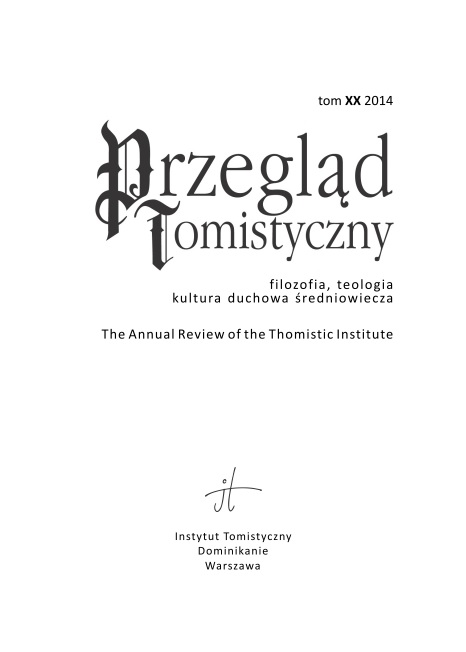WOJCIECH SURÓWKA OP, Ways of Reconcilation. On the Common Message to the Polish and Russian nations

Volume XVIII: 2012
Philosophy — Theology— Spiritual Culture of the Middle Ages
ISSN 0860-0015
e-ISSN 2544-1000
SUMMARY
The Apostle Paul, in his letter to the Corinthians, writes that the mystery of the new creation “comes from God, who reconciled us to himself through Christ and gave us the ministry of reconciliation” (2 Cor 5: 18). This verse sets the evangelical tone of the Message to the Polish and Russian Peoples, which was signed on August 17, 2012 by Patriarch Cyril I and Archbishop Józef Michalik. In this article are observations about the relationship between reconciliation as a gift of God and the mission of reconciliation that Christ gives to the Church.
The main theme of the Message is the issue of reconciliation between the Polish and Russian nations. The central assertion of the document is an appeal to the text of the Lord’s Prayer, and specifically to the words, “forgive us our trespasses, as we forgive those who trespass against us.” In contrast to the Message of the Polish Bishops to the Bishops of Germany (1965), in this document, no one is asking for or granting forgiveness. Instead, the leaders of both churches appeal to the faithful to forgive one another’s faults, “so that every Pole will see in every Russian and every Russian will see in every Pole a friend and brother.”
The Message opens a new space for dialogue not only between the peoples of Russia and Poland, but between Russians and Ukrainians and Poles and Ukrainians. We have here a great opportunity to open a new phase of ecumenical dialogue.
In the second part of the document, there is a clear appreciation of the ethical dimension of the mission of both churches. The most urgent task of ecumenical dialogue is to determine what exactly, in our time, is the meaning of the commandment of love. Certain members of the Orthodox hierarchy see the possibility of creating a “holy conspiracy” between Catholicism and Orthodoxy against “militant secularism.” One must not, however, lose sight of the primacy of truth over practice. Despite criticism, despite its shortcomings and suggestions that this document is an exercise in fence-sitting, the Message opens a new perspective on broad-based dialogue. It may contribute to reconciliation among nations. Furthermore, as they consider forgiving the Russians, Poles will have to review their attitude to fellow Poles; the same is true of Russians. In addition, the Message opens the path of reconciliation not only between the Roman Catholic Church and the Patriarchate of Moscow, but is a precedent which sets a positive example for many other churches. The next step should be taken in Ukraine, from both the Russian and the Polish sides. In addition, the expression of a common concern for the Christian heritage of Europe is something that many people have anticipated for a long time. In matters of ethics we must speak with one voice. Let this be a voice that carries the “word of reconciliation.”
